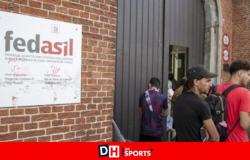Mobility. This is an essential theme for those living in rural areas. Without travel possible, all economic and social life is impacted. And what about seniors who, due to lack of mobility and therefore access to services, can sometimes no longer stay at home. When over a large territory, certain areas have less than 5 inhabitants per km², then yes, mobility becomes public issue number one. And when concerns related to climate issues also arise, we have to rack our brains to find suitable solutions.
In Pays de Langres, in the south of Haute-Marne, we went to see what was being done elsewhere, in similar areas and 15 years ago, we decided to swap the old polluting buses for on-demand transport. in a much lighter vehicle. Sylvie Baudot, mayor of the small town of Cohons, elected to lead this project, recalls how the decision to eliminate the 15 bus lines (the bus passed through each village once a week), a service inherited from the 1960s, n was not immediately unanimous. We had to explain, inform and above all organize things. Thus was born Linggo, a mobility kiosk in the Pays de Langres, which puts transport on demand to music. Linggo provides information but also manages all reservations. Over time, for 15 years, Linggo has developed different services with always the same objective: to ensure that rural residents can come to do their shopping in the city or in nearby towns, and can go to an appointment. you medical, go take a train at the station or simply visit family or friends.
Mobility is also social connection
Didier Riquet, mobility coordinator of the territorial and rural balance pole (PETR) of Pays de Langres confirms that mobility “is also about social bonds. » I live in Auberive and I want to do my shopping in Langres on Friday morning? I book my trip with Linggo and a vehicle will pick me up on the appointed day to go to Langres or Saints-Geosmes. This is on-demand transportation. The vehicle routes are optimized of course: the vehicle will make a tour to pick up interested people from the same sector.
The figures prove the designers of this service right. “We record between 5,000 and 6,000 journeys per year for this service,” explains Didier Riquet. It recalls the other existing services, one linked to the Culmont-Chalindrey railway station where travelers are dropped off or picked up. And more recently, a new offer has been added to Linggo’s services. “A request expressed by the residents,” explains Didier Riquet. On-demand transport is taking over town centers such as Bourbonne, Chalindrey, Longeau, Val de Meuse, Rolampont, Montsaugeonnais, Auberive, etc. For appointments in a healthcare home, to go to the pharmacy or a small store, it’s quite practical.
“We duplicated what was done at the level of the transport union in the Bourbonne-les-Bains region,” recalls the PETR mobility coordinator. The offer has existed for a little over a year and a half, and seems to have found its audience.
Unique and very accessible prices
In Pays de Langres, on-demand transport represents between 8,000 and 9,000 reservations per year. The political pricing strategy aims to make it a service accessible to all with single prices ranging from 2.50 euros (discount on a town center) to 4 euros to go to the station. We are far from the cost of the service. But in Pays de Langres, mobility has become a priority but also a number one public service. Linggo’s costs are thus borne by contributions from the three communities of municipalities and by the Region which has jurisdiction over transport.






